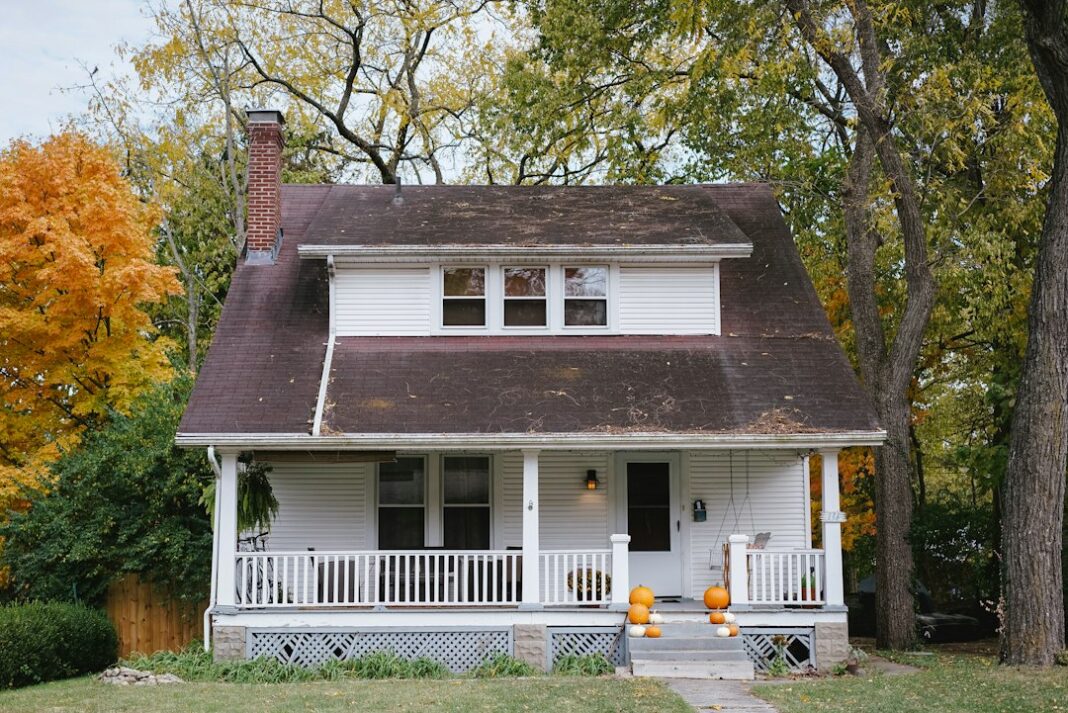“This post may contain affiliate links, if you click a link we may earn a commission if you purchase from that merchant.”
Home safety and insurance coverage are two crucial aspects of protecting your home and belongings. Without proper coverage, homeowners and renters face significant risks and potential losses in the event of accidents, theft, or natural disasters. Home insurance provides financial protection against these risks, ensuring that you can recover and rebuild if the unexpected occurs.
Table of Contents
Key Takeaways
- Home insurance is important for protecting your property and belongings.
- Home insurance typically covers damage from natural disasters, theft, and liability.
- Renters insurance is necessary for protecting your personal belongings in a rental property.
- When comparing home insurance, consider factors such as coverage limits and deductibles.
- Home safety measures, such as smoke detectors and security systems, can help lower insurance costs and reduce risks.
Understanding Home Insurance: What Does it Cover?
Home insurance is a type of property insurance that provides coverage for your home and its contents. It typically includes coverage for the structure of your home, personal belongings, liability protection, and additional living expenses in case you are temporarily displaced from your home.
There are different types of coverage available, including dwelling coverage, which protects the structure of your home; personal property coverage, which covers your belongings; liability coverage, which protects you if someone is injured on your property; and additional living expenses coverage, which pays for temporary housing if you cannot live in your home due to a covered loss.
Examples of what is typically covered by home insurance include damage caused by fire, theft, vandalism, windstorms, hailstorms, and certain types of water damage. It is important to review your policy carefully to understand what is covered and what is not.
Homeowners Insurance: Protecting Your Property and Belongings
Homeowners insurance is essential for protecting your property and belongings. It provides financial protection in case of damage to your home or loss of personal belongings due to covered events. Without homeowners insurance, you would be responsible for covering the costs of repairs or replacements out of pocket.
For example, if a fire were to break out in your home and cause extensive damage, homeowners insurance would help cover the costs of repairing or rebuilding your home. It would also provide funds to replace any damaged or destroyed personal belongings.
Homeowners insurance can also provide liability protection. If someone were to get injured on your property and file a lawsuit against you, homeowners insurance would help cover legal expenses and any damages awarded.
Insuring Your Home: Tips for Finding the Right Coverage
When it comes to finding the right home insurance coverage, there are several factors to consider. First, you need to determine the appropriate coverage amount. This can be done by calculating the cost to rebuild your home and replace your belongings. It is important to ensure that your coverage amount is sufficient to cover these costs.
Next, you should consider the deductible amount. The deductible is the amount you are responsible for paying out of pocket before your insurance coverage kicks in. A higher deductible will result in lower premiums, but it also means you will have to pay more in the event of a claim.
It is also important to review the policy limits and exclusions. Make sure that the coverage provided aligns with your needs and that there are no significant exclusions that could leave you vulnerable in certain situations.
Lastly, shop around and compare quotes from different insurance providers. This will help you find the best coverage at the most competitive price.
Renters Insurance: Why You Need It and What it Covers
Renters insurance is often overlooked by tenants, but it is just as important as homeowners insurance. While your landlord’s insurance policy may cover the structure of the building, it does not protect your personal belongings or provide liability coverage for accidents that occur within your rented space.
Renters insurance provides coverage for your personal belongings in case of theft, fire, or other covered events. It also includes liability protection in case someone is injured while visiting your rented space.
For example, if there was a break-in and your laptop and other valuables were stolen, renters insurance would help cover the cost of replacing those items. If someone were to slip and fall in your apartment and sue you for their injuries, renters insurance would help cover legal expenses and any damages awarded.
Comparing Home Insurance: Factors to Consider
When comparing home insurance policies, there are several factors to consider. First, you should evaluate the coverage options provided by each policy. Make sure that the coverage aligns with your needs and that there are no significant exclusions that could leave you vulnerable in certain situations.
Next, consider the cost of the policy. Compare quotes from different insurance providers to find the most competitive price. However, keep in mind that the cheapest policy may not always provide the best coverage.
It is also important to review the reputation and financial stability of the insurance provider. Look for a company with a strong track record of customer satisfaction and prompt claims handling.
Lastly, consider any additional benefits or discounts offered by the insurance provider. Some companies may offer discounts for bundling multiple policies or for installing safety features in your home.
Home Safety Measures: Simple Steps to Reduce Risks and Lower Insurance Costs
Taking simple home safety measures can help reduce risks and lower insurance costs. By implementing these measures, you can prevent accidents and damage, which can lead to lower premiums on your home insurance policy.
Some examples of home safety measures include installing smoke detectors and carbon monoxide detectors, maintaining a fire extinguisher in your kitchen, securing windows and doors with sturdy locks, and installing a security system.
By having these safety measures in place, you can reduce the risk of fire, burglary, and other incidents that could result in damage to your property or personal belongings.
Fire Safety: Preventing Fires and Minimizing Damage
Fire safety is of utmost importance in the home. Fires can cause extensive damage and put lives at risk. By implementing fire safety measures, you can prevent fires from occurring and minimize damage if a fire does break out.
Some tips for preventing fires include never leaving candles unattended, keeping flammable materials away from heat sources, regularly cleaning out dryer vents, and having your electrical system inspected by a professional.
In the event of a fire, it is important to have a plan in place. Make sure everyone in your household knows how to evacuate safely and where to meet outside. Practice fire drills regularly to ensure that everyone is familiar with the escape routes.
Home Security: Protecting Your Home from Burglars and Intruders
Home security is essential for protecting your home from burglars and intruders. By implementing security measures, you can deter criminals and reduce the risk of theft or property damage.
Some tips for improving home security include installing deadbolt locks on all exterior doors, installing motion sensor lights around your property, and installing a security system with cameras and alarms.
By having these security measures in place, you can make your home less attractive to burglars and increase the chances of catching them if they do attempt to break in.
Natural Disasters: Preparing for and Coping with Unexpected Events
Natural disasters can strike at any time, causing significant damage to homes and belongings. It is important to be prepared and have insurance coverage in place to help you recover from these unexpected events.
Some tips for preparing for natural disasters include creating an emergency kit with essential supplies, having a plan in place for evacuation or sheltering in place, and keeping important documents and valuables in a safe place.
Insurance coverage can help homeowners and renters recover from natural disasters by providing funds to repair or rebuild their homes and replace damaged or destroyed belongings. It is important to review your policy carefully to understand what is covered in the event of a natural disaster.
In conclusion, home safety and insurance coverage are essential for protecting your home and belongings. Home insurance provides financial protection against risks such as accidents, theft, and natural disasters. By understanding what is covered by home insurance, homeowners and renters can ensure that they have the appropriate coverage in place. Implementing home safety measures and taking steps to prevent fires, improve home security, and prepare for natural disasters can help reduce risks and lower insurance costs.
Make Your Home Safer and Reduce Insurance Costs with the Best Renters Insurance Companies. Renters insurance not only protects your belongings but also provides liability coverage in case of accidents or damage to the property. By choosing the right renters insurance company, you can ensure that your home is protected and potentially reduce your insurance costs. Check out this article to find out more about the best renters insurance companies and how they can help make your home safer. Read more
FAQs
What are some ways to make my home safer?
Some ways to make your home safer include installing smoke detectors, carbon monoxide detectors, security systems, and deadbolts on doors. You can also make sure your home is well-lit and keep walkways clear of clutter.
How can making my home safer reduce my insurance costs?
Insurance companies often offer discounts for homes that have safety features such as smoke detectors, security systems, and deadbolts. These features can reduce the risk of damage or theft, which can lower the likelihood of insurance claims.
What should I do if I experience a break-in or theft?
If you experience a break-in or theft, you should contact the police immediately and file a report. You should also contact your insurance company to report the incident and begin the claims process.
What is liability insurance and why is it important?
Liability insurance provides coverage for damages or injuries that you may be held responsible for. This type of insurance is important because it can protect you from financial losses if someone is injured on your property or if you cause damage to someone else’s property.
How can I lower my insurance costs?
In addition to making your home safer, you can lower your insurance costs by increasing your deductible, bundling your home and auto insurance policies, and maintaining a good credit score. You can also shop around and compare quotes from different insurance companies to find the best rates.



































